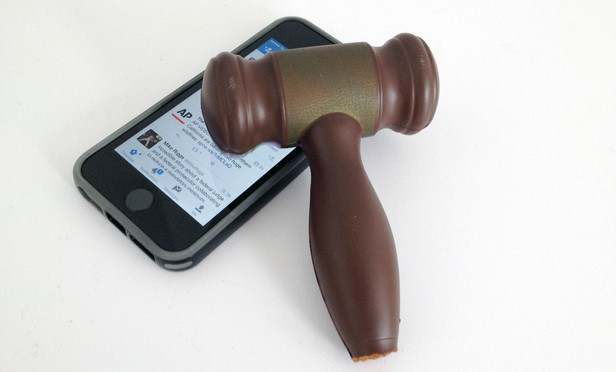Its users are only permitted 140 characters to communicate their thoughts, but the platform has emerged as a mechanism to move markets, impact elections, and to generally allow 319 million users, as reflected in available statistics from the fourth quarter of 2016, the ability to publicly share their thoughts on anything—for good or bad—with the rest of the world. The President of the United States is even an avid user; so much so that his near daily 5:00 a.m. Twitter musings have become a mainstay in the news and in sketch comedy alike.
Given the ubiquity of the platform, and the current popularity of social media in general, it is not surprising that the Appellate Division has now decided the second case involving the use of Twitter content as evidence in as many months. However, as has already been cautioned in “Use of Digital Evidence at Trial is Ripe for Guidance in the New Year,”233 N.J.L.J. 179, 51 (Jan. 16, 2017), when discussing the first of this recent duo of cases, there still remains the need for a more nuanced and thoughtful development of the law in New Jersey in connection with the often maligned and frequently misunderstood world of electronically stored information (ESI).
This content has been archived. It is available through our partners, LexisNexis® and Bloomberg Law.
To view this content, please continue to their sites.
Not a Lexis Subscriber?
Subscribe Now
Not a Bloomberg Law Subscriber?
Subscribe Now
LexisNexis® and Bloomberg Law are third party online distributors of the broad collection of current and archived versions of ALM's legal news publications. LexisNexis® and Bloomberg Law customers are able to access and use ALM's content, including content from the National Law Journal, The American Lawyer, Legaltech News, The New York Law Journal, and Corporate Counsel, as well as other sources of legal information.
For questions call 1-877-256-2472 or contact us at [email protected]



